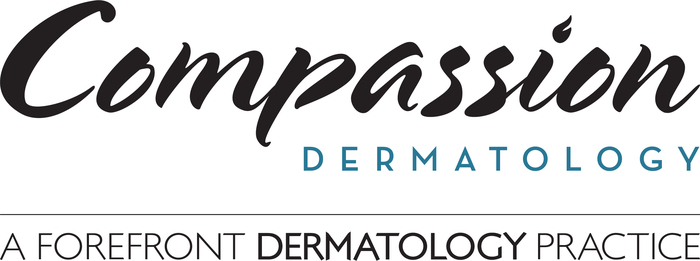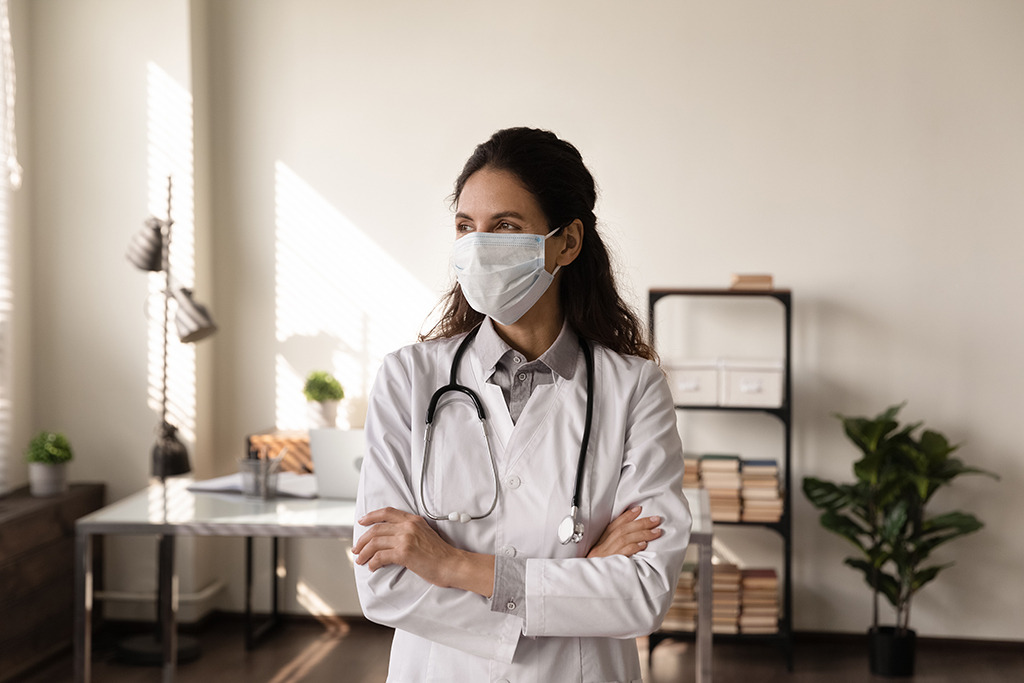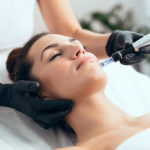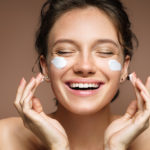Photo by vmaslova at Shutterstock
Nothing represents being 16 better than acne, but the adolescent bother really starts to get annoying when you are 30+ and still dealing with acne every time you get stressed. If you seem to notice that your acne gets worse when you are heavily stressed or not sleeping enough, you actually are not wrong. Stress actually releases high levels of cortisol within the body which unfortunately causes inflammation and oil production- the magic ingredients of acne breakouts. Add in the fact that a lot of people are still wearing face masks around the major acne breakout zones, and you have a recipe for disaster that only a dermatology office in the Southlake area can help you solve.
Everyone’s daily habits have changed over the past two years, and it looks like the end of pandemic stress is still not in sight so it is understandable if your face is suddenly a mess. However, as a professional adult, you likely don’t want to look like the 16-year-old version of yourself. The good news is that there are things that can be done about it. While controlling your stress levels may not always be a formidable option, controlling the way you wear your stress on your face is with the right dermatology practice by your side.
Why Does Stress Cause Acne?
So, jumping back to the original question, it can be hard to understand why stress can produce acne on your face. In reality, it’s a chemical reaction that is actually causing your skin to suddenly sprout red pimples and blackheads. Cortisol is closely related to testosterone which when stimulated in great amounts will cause your acne to break out and inflammation on the face. Plus, it makes excess oil in your skin and anyone with combination skin knows that oil is almost always the enemy.
What Can You Do About Stress-Caused Acne?
Sometimes at-home treatments are enough to keep you out of the dermatology office, sometimes they are not. While most of the time it is helpful to see a dermatologist for help, a few simple tools will help any prescription or skin procedure that is recommended by our local Southlake area office. Keeping your skin clear always requires a certain regime, and sticking to the rules of proper skin health will help you out whether or not you also need professional help.
To start, you need to make sure that you wash your face at least once a day, if not twice. Even if you do not wear makeup, dirt and grime build up on your face and will quickly clog the pores in your face. If you don’t remove daily filth from your face you will probably end up with breakouts whether you experience more stress or not. The addition of stress will just make the situation even worse, which is why you may go from having one annoying pimple to the addition of a breakout so severe you end up in the chair at a dermatology office.
When it comes to cleansers you have a lot of choices, as there are now more beauty products than ever before available on the marketplace. You can choose from a gentle cleanser to a benzoyl peroxide cleanser to an exfoliating cleanser or a salicylic acid cleanser. Most people get the best results by alternating cleansers to get a different array of effects. On the other hand, if you have sensitive skin you will probably do best with a gentle cleanser or something that is recommended by your dermatologist since you don’t want to make the situation even worse either.
Stay On Top of Your Skin After a Workout
While workouts are great for your general health, they are not always great for your face, especially if you tend to sweat a lot while working out. Grime and sunscreen (if you are running outdoors) can also quickly cause breakouts so it is important to clean your face thoroughly after your workout. If you don’t have time to wipe up at home after the gym, consider purchasing a salicylic acid-based pack of cleansing pads. You can easily toss these in a backpack or gym bag and then wipe your face down after the workout to at least remove a layer of surface grime before getting ready to return to normal life.
Proper Skin Care at Night
Believe it or not, a few simple steps at night can also help you stay out of the dermatology office, or complement some of the medications and treatment plans that you receive a the dermatology office. If you can, keep your hair away from your face while you sleep by pulling it back loosely or pulling it behind your head and over the pillow when you seep so you aren’t rolling in it all night. Oily hair in particular can actually lead to clogged pores and increase the risk of acne breakouts.
You also want to make sure that you wash your pillowcases or trade them out at least twice a week because all of the oil in your hair and your face is regularly ending up on your pillowcases and then getting rubbed into your face nightly. Dirt and sweat also have a habit of building up on your pillow. Finally, while this applies to any time during the day and not just at night, don’t touch your face unless you want to end up at the dermatology office and whatever you do, don’t pick any pimples or blackheads. Don’t listen to people who tell you that doing so will help them heal, it will not and in fact, will usually make them last longer and even scar.
Does it look like you could be playing connect the dots with your pimples? Then it is time to call a local dermatology office and get some help. Compassion Dermatology is ready to help, call us today to schedule your consult.

 Photo by fizkes at Shutterstock
Photo by fizkes at Shutterstock
